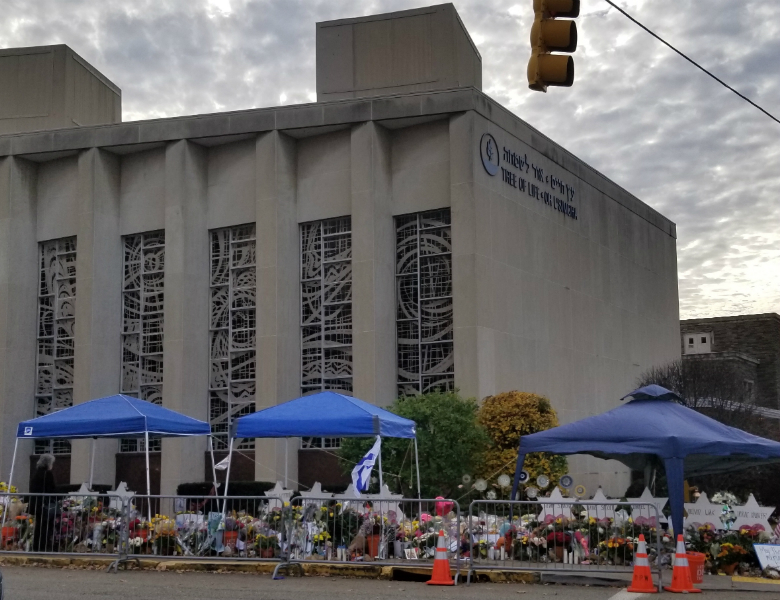When I was in Grade 6, back in 1978, I had an assignment to interview immigrants about why they moved to the Pittsburgh neighbourhood of Squirrel Hill.
I decided to talk to my aunt Eleanor and uncle Abe. Eleanor, who was in her 70s at the time, told me a horrific story from when she was a child about how members of her family were raped and murdered during pogroms in czarist Russia. Eleanor survived because she was small enough to hide under the floorboards. She fled as a refugee, came to America with nothing, ended up in Squirrel Hill and thought it was “paradise” because, for the first time, she felt “safe” being a Jew.
Until then, I had never thought of Squirrel Hill as paradise, despite the incredible success of Pittsburgh’s sports teams. In the 1970s, Pittsburgh was still the “Steel City” and those mills emitted a sour sulfuric odour. The rivers were a dead sludge coated with an oily multi-coloured sheen. While Squirrel Hill was a picturesque and diverse neighbourhood of immigrant shops, kosher bakeries and synagogues, many parts of the city were real-life examples of scenes from the end of Dr. Seuss’ The Lorax. My history teacher told stories about how it was even worse in the 1940s, when the air was so filthy that businessmen had to change their shirts several times a day, as the soot stained their clothes.
But to Abe and Eleanor, this was paradise. They were not crazy about the pollution, but treasured the peace. Growing up, I attended weddings, as well as my friend’s bar and bat mitzvahs, at the neighbourhood synagogues, including Tree of Life. None of them had guards, but never for a moment did we feel unsafe. The greatest conflict in Squirrel Hill was whether Mineo’s or Napoli’s made the city’s best pizza.
Abe and Eleanor passed away before the city’s steel mills closed down in the following decades. The sour industrial smell in the air eventually disappeared and the city became a leading centre for robotics and medical research, much closer to the fictionalized ideal town in Mister Rogers’ Neighborhood, which was filmed in Pittsburgh.
READ: PITTSBURGH SHOOTING SPARKS DEBATE OVER GUNS IN CANADIAN SHULS
Nearly two decades ago, I moved to Toronto. I was here in Canada when the unthinkable news broke of a massacre at Tree of Life, which is located just five blocks from the home I grew up in, where my mother, sisters, niece and nephew still live. The moment it took them to answer the phone seemed like an eternity, but thankfully, they were OK. Yet Squirrel Hill is a tight-knit community and our worst fears were realized. My mother knew some of the victims, and so did I.

My mind flashed back to Eleanor’s stories of Jews who were murdered simply for being Jews, much as the congregants at Tree of Life were. But they were also targeted because they were helping immigrants and refugees. In the ’70s, my mother worked to save Jewish-Russian dissidents. And my aunt and uncle could easily have been described as part of a “caravan of invaders.” That caravan built Squirrel Hill.
So what happens next? We will try to reassure ourselves that this was just one crazy gunman. We will tell ourselves that today’s anti-Semitism is nothing like what Abe and Eleanor fled from, but we will always be looking over our shoulders. The one saving grace was seeing thousands of people of all faiths at Toronto’s Mel Lastman Square for a vigil against hate, and again in synagogue just after the massacre. I cannot imagine such solidarity in the wake of the pogroms of a century ago, or during the Holocaust.
Back in Squirrel Hill, emotions are still raw. The Jewish community is still in mourning. Pittsburgh’s air and water are now much cleaner, but it is no longer paradise.










